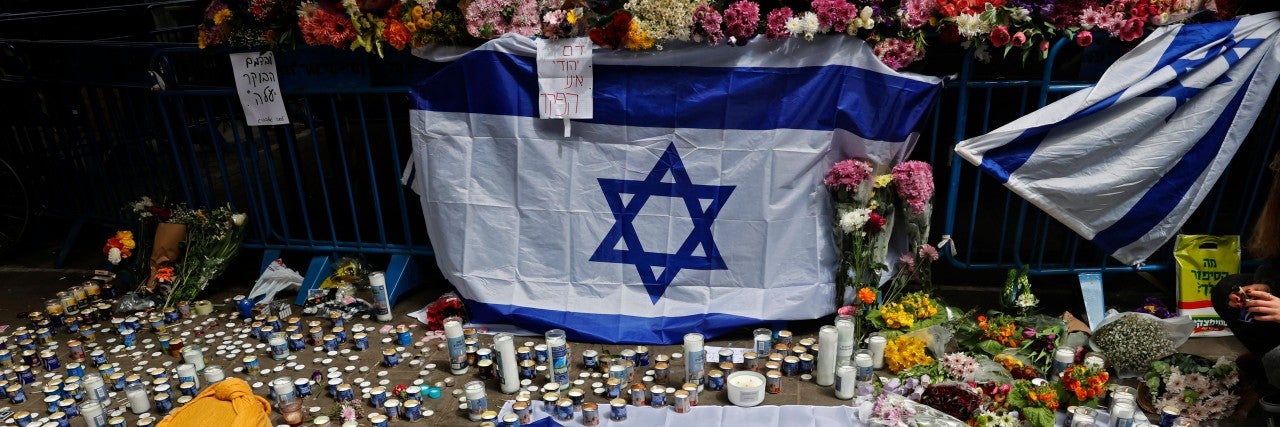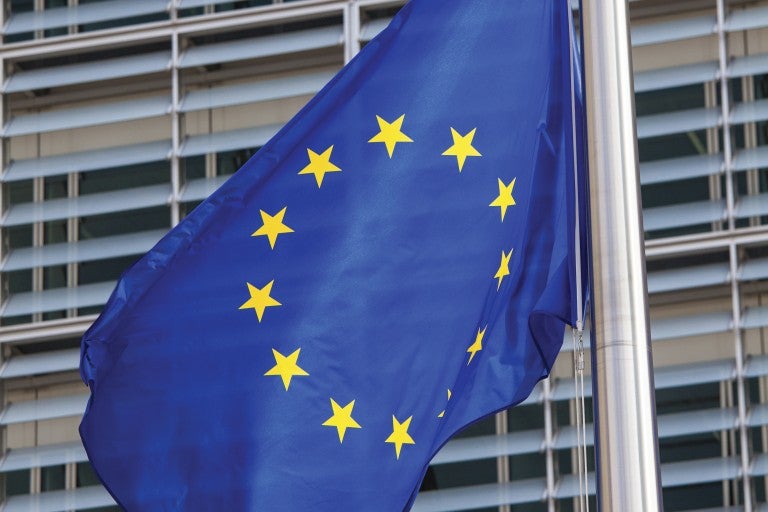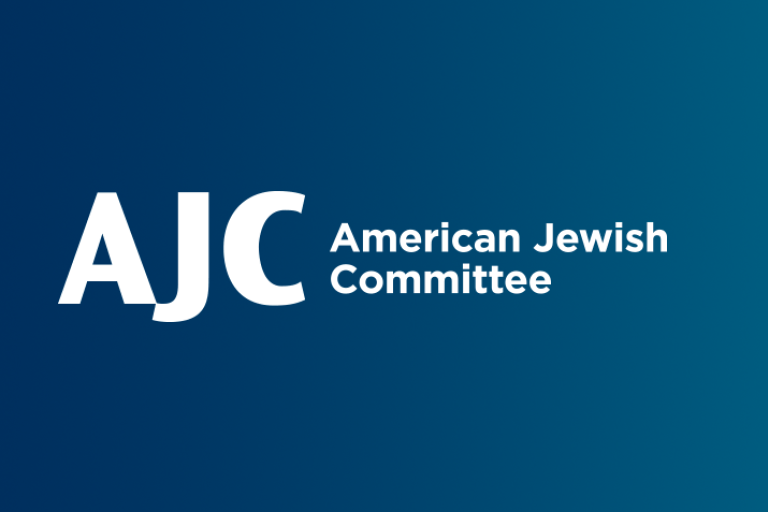May 26, 2022
Since March, Israel has experienced a wave of terrorism unprecedented in recent years, taking 19 lives. In the latest attack, two terrorists murdered three men, leaving their children without a father, and wounded several others in the central city of Elad at the end of Israel’s Independence Day, Yom Ha’atzmaut.
After a three-day manhunt ending on May 8, law enforcement arrested two suspects from an area outside the West Bank city of Jenin, which has become a flashpoint during the ongoing terror wave. While the Palestinian Authority is responsible for security in Jenin, it is historically passive there, allowing terrorist groups to flourish, at the expense of the Palestinian residents of Jenin as well as the Israelis they target.
The following week, as the Israeli Defense Forces entered Jenin’s refugee camp and the nearby town of Burqin to arrest suspects, Palestinian gunmen ambushed them, opening fire and using explosives. Shireen Abu Akleh, a veteran Palestinian-American journalist who worked for Al Jazeera for 25 years, was tragically shot and killed during the firefight. Israeli officials expressed sorrow over Abu Akleh’s death, and called for a joint investigation with the Palestinian Authority.
The United States, too, pressed for a joint autopsy and ballistics testing of the bullet removed from the journalist’s body. Palestinian Authority (PA) President Mahmoud Abbas rejected all proposals for a joint investigation, refusing to hand over the bullet. Without that, the source of the gunfire cannot be verified, enabling the PA to spin an anti-Israel narrative without the risk of being refuted by forensic evidence. The cause of Abu Akleh’s death is still being investigated.
Before the Elad attack and Abu Akleh’s death, terrorists killed an Israeli security guard in Ariel; a father of three and his two childhood friends at a bar in Tel Aviv; five people in the Tel Aviv suburb of Bnei Brak; two Israeli border police officers in Hadera; and four Israelis in Beersheba. Dozens of others have been wounded in these unprovoked attacks. Much of the media coverage and public discourse about this wave of terrorism against Israelis highlight long-standing tensions between Israel and the Palestinians, but they leave out the context of incitement from political, religious, and civil sectors among Palestinian leadership.
The ongoing wave of terror is not being carried out in a vacuum. There are multiple sources. Some Palestinian political leaders and educational materials encourage acts of terror against Israeli civilians as valid forms of anti-Israel political protest. Some Palestinian policies either passively or actively reward terrorism. Israeli-Palestinian relations must be improved for the good of both peoples, but anyone committed to de-escalating the current crisis and encouraging Israeli-Palestinian peace must address incitement emerging from within Palestinian society.
Here are seven ways that Palestinian leadership encourages terrorism against Israeli civilians.
1. Glorifying Terrorists
Those who have answered the call to kill Jews are being celebrated as martyrs, with some Palestinians in Gaza and the West Bank even singing songs of praise and handing out candy in the streets after each horrific attack. Posters of the terrorists line the streets, lionizing those who murdered Israelis. While we do not know the true extent to which Palestinian civilians support these attacks, the acts of glorification are public, and may motivate others to replicate the anti-Jewish violence.
Furthermore, it is not uncommon for Palestinian schools or city squares in Palestinian towns to be named for terrorists who murdered Israelis. For example, in 2010, a public square in El Bireh, West Bank, was named for Dalal Mughrabi, a 19-year-old leader of a Palestinian squad that in 1978 killed an American photojournalist and murdered 38 Israeli civilians, 13 of them children. In 2017, the Norwegian government withdrew funding from a Palestinian women’s center named after the same terrorist when the center’s leadership refused to rename it.
Last year, the PA announced it would honor “martyrs,” including those who committed acts of terror against Israel, by planting 35,000 olive trees to honor those who died since 1917, the year the Balfour Declaration was issued.
In addition, Palestinian Authority officials often condone the act of losing one’s life to attack Israelis by visiting the families’ mourning tents when a terrorist is killed and paying their respects.
“In Arab society, dignity and respect are something very significant,” Leibovich said. “When a poor family or uneducated family receives such high-ranking visits, this is only encouraging others to be in the same position.”
2. Membership Not Required
Unlike many previous terror attacks–including the regular barrage of rockets Hamas fires at Israel indiscriminately–the most recent assaults have largely not been carried out by active members of terror groups like Hamas or Palestinian Islamic Jihad.
“The incitement was always there, but in the past, you were a member of a terror group,” said AJC Jerusalem Director Avital Leibovich. “As part of this membership, you were encouraged to kill a Jew or stab a Jew. Now it’s a different situation.”
Without any operational support, the terrorists carrying out the attacks have found creative ways to reach their targets, such as finding gaps in the West Bank security barrier or manipulating unknowing Israelis to help.
For example, in Elad, an Israeli taxi driver ferried two terrorists to the city center after they told him they were renovating a synagogue. They fatally stabbed him and two others and injured many more. In Bnei Brak and Hadera, the killers evaded security by driving cars with fake Israeli license plates.
“They are goal-driven,” Leibovich said. “They would do anything and everything to reach their goal of killing that Jewish man or woman or child.”
3. Cash Incentives to Kill
The Palestinian Authority provides cash incentives to murder Jews. The more people a terrorist murders, the more money he and his family receives from the government. On the 2022 anniversary of Israel’s independence, PA President Mahmoud Abbas renewed that commitment.
This benefit, dubbed “pay-to-slay,” disburses more than $350 million to convicted and imprisoned terrorists and their families who have died in connection with killing Jews and Americans. That means 8% of the Palestinian Authority budget goes to cash bonuses and monthly allowances for terrorists and their families. This is money that could be spent to improve the social welfare, education levels, and economic status of Palestinian people, but instead is used to encourage acts of violence against Israeli people.
Although Abbas has issued what the Palestinians refer to as condemnations of the attacks, they have been quite weak. “In reality,” Leibovich said, “not even one Palestinian official properly condemned the terror acts.”
All political leaders have the responsibility to confront extremist violence from among their populations; peace will never be achieved while Palestinian political leadership incentivizes hate and attacks against Israelis.
4. Stoking Anger on Social Media
For many Israelis and Palestinians, social media provides a means to connect across borders on a people-to-people level. Unfortunately, for Hamas and other terrorist groups, social media provides yet another tool to incite violence against Israeli civilians. Examples can be found in pro-Hamas social media accounts, such as using children to express support for the Tel Aviv terror attack in March.
According to the Meir Amit Intelligence and Terrorism Information Center, “social media is popular mostly among the younger generation and is used by youths as the main means of consuming news (including fake news). It is likely that social media also influences the extent of their radicalization and willingness to take part in violent activity and in carrying out attacks.”
However, this has not just been limited to terror groups. The Palestinian Authority’s official social media accounts have also stoked tensions.
In April, during the convergence of Ramadan, Passover, and Easter, Palestinian Authority leaders portrayed Israel as aggressively suppressing worship in holy places. While Israeli police did respond to provocation by a small group of extremist activists at the Haram Al-Sharif, hundreds of thousands of Palestinians worshiped freely during the holiday season, with support and protection from Israeli police. Yet, Prime Minister Mohammad Shtayyeh tweeted a video from inside Al-Aqsa Mosque with the caption: “The occupying Power’s brutal assault and desecration of the first Qibla for Muslims is a violation of Palestinian worshippers’ right to pray, especially during holy Ramadan. Our people have the right to defend their land and sanctities.”
The PA’s Mission to the United Nations also tweeted: “How come Israel is allowed to get away with it? How come it gets away with murder, in broad daylight, & while everyone is watching?”
These false claims spread disinformation that fan the flames of tension; responsible leaders use their platform to de-escalate conflict and prevent violence.
5. Palestinian Authority’s Failure to Address Violence
One factor contributing to the suffering of the Palestinian people is a lack of leadership willing to accept Israel as a neighbor and partner in peace. The principal actors in the Palestinian political space are the Palestinian Authority, controlled by Fatah and entrenched in the West Bank, which has proven itself unwilling or incapable of leading its people toward reconciliation and peace, and Hamas, a terrorist organization dedicated to dismantling Israel.
Established by the Oslo Accords, the Palestinian Authority oversees the parts of the West Bank where most of the population is Palestinian. However, PA effectiveness and popularity have diminished over time, with many within Palestinian society as well as the international community accusing the quasi-government of human rights abuses, authoritarian tactics, and a failure to crack down on terrorism. Israeli security cooperates with the Palestinian Authority, but when the PA fails to address terrorism, Israel must step in.
“In the 28 years since the Palestinian Authority was established, it has not indicted one terrorist for killing innocent people,” said AJC’sl Leibovich. “Not one night goes by in the West Bank without an Israeli vehicle being struck by a rock hurled in its direction. The attacks have become so frequent and routine, that they are rarely reported unless someone is killed.”
Leibovich noted that in previous years, the PA’s police force routinely carried out operations to find suspects or break up terror cells among the Palestinian population of the West Bank. But today, with its support waning and corruption rampant, it has been accused of not effectively combating terrorism.
At the same time, the standing of the anti-Israel, antisemitic, Iran-backed terrorist group Hamas has strengthened, thus diminishing the Authority’s effectiveness throughout the West Bank.
For example, Leibovich said that there is effectively no Palestinian Authority law enforcement in the city of Jenin, where journalist Abu Akleh was murdered, because PA security is threatened by the terrorist groups operating there and so they do not enter.
6. Children Learn to Hate Jews from an Early Age
The job of educators is to teach the next generation respect for all human beings, and in conflict zones to find constructive ways to engage with the other. Unfortunately, textbooks in the Palestinian school system contribute to a culture of anti-Israel and anti-Jewish hate.
Earlier this year, the European Union froze funding for Palestinian Authority after discovering that it had ignored calls to remove from school-issued textbooks outright antisemitism, justifications for violent jihad, and condemnation of Israel’s right to exist.
The move by the EU follows years of increasing evidence of anti-Israel curricula taught in Palestinian schools. An EU-commissioned study in June 2021 confirmed rampant antisemitism, glorification of terror, and the erasure of Israel on maps in Palestinian school books.
A recent study by The Institute for Monitoring Peace and Cultural Tolerance in School Education (IMPACT-se), a Jerusalem-based nonprofit that monitors educational materials for extremist views, found many troubling examples of lessons taught in Palestinian schools.
A social studies lesson blames the “Zionist occupation” as the reason for violence in the region and celebrates terrorists as role models. Geography lessons about the region omit Israel and Israeli sites from maps labeled Palestine.
A science lesson about air quality describes an incident in which the Israeli army shot tear gas at Palestinian protesters in Ramallah, fueling myths about Israel’s arbitrary attacks on peaceful Palestinians.
Arabic lessons use examples that encourage students to sacrifice themselves for their motherland and “redeem it with blood” and another asks students to analyze the grammar of “the jihad warriors fought in defense of their homeland” and “the believers rushed to respond to the call of jihad.”
A math lesson asks third graders to compare the number of prisoners in the “occupation prisons” from one year to the next.
IMPACT-se also revealed that a 17-year-old knife-wielding Palestinian terrorist who was shot dead while attempting to invade an Israeli settlement on May 8 attended a school that taught students “gruesome content, directly instructing pupils to kill Israelis,” including with guns, axes, and knives.
These teachings do not represent Islam as a religion, but a political anti-Israel reading of religion and history and culture. If Israelis and Palestinians are to know a relationship of peace and cooperation, the reform of education of Palestinian children is a necessary first step. If one wants to discuss violence by individuals in the name of Palestinian nationalism, the context of education towards incitement cannot be ignored.
7. Tension at the Haram al-Sharif/Temple Mount
As with previous conflicts, such as the build-up to the May 2021 Gaza War, supposed threats to the Temple Mount have been used as a pretext by Palestinian political leaders and terror groups to incite tensions with Israel.
Palestinian leaders have encouraged the myth that Israel is seeking to change the status quo on the Haram al-Sharif/Temple Mount. But that is simply not true.
The sacred precinct at the center of Jerusalem’s Old City is the holiest site in Judaism and is also holy in Islam. It is the site where two Jewish temples stood (and were destroyed) during antiquity, and where today the Dome of the Rock and Al-Aqsa Mosque stand. It is known to Jews as the Temple Mount and to Muslims as Haram al-Sharif. After Israel captured control of Jerusalem (including the Haram al-Sharif/ Temple Mount) during the 1967 Six-Day War, Israel handed control to the Muslim Waqf religious authorities, overseen by the Jordanian government. As part of the status quo agreement, Jews are permitted to visit the Temple Mount only on certain days, at certain hours, but are not permitted to pray.
Of the nine gates surrounding the Al-Aqsa Mosque compound, only one serves as a point of access for Jewish pilgrims to the Temple Mount, and only during certain hours. Muslim worshipers are free to enter through any of the other eight gates to reach Al-Aqsa. Many commentators writing about the tensions at this site fail to mention that Israel actually restricts Jewish prayer at its holiest site in the name of peace and tranquility. While some Jewish extremists may wish this were different and try to take actions to change this, the government of the State of Israel has stated again and again that the status quo will stand.
Law enforcement has suggested that reducing the religious extremism at Al-Aqsa Mosque in Jerusalem should be a priority for combating the most recent wave of violence. Sadly, Ramadan, a time for peace and reflection, has been subverted by some to promote hate and violence.
Tensions between Israelis and Palestinians have risen dramatically in recent months. All friends of the region should seek constructive ways to foster calm and tranquility. An essential method is by confronting people and policies that foment hatred and extremist violence.


